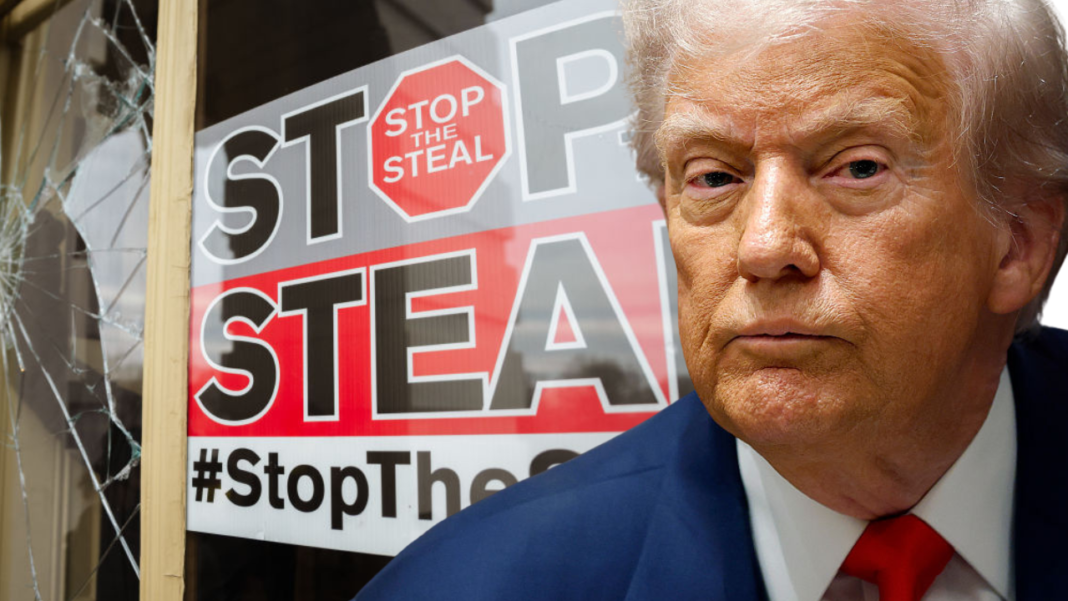Trump’s Pardons: A Controversial Message to Allies and Detractors Alike
In recent weeks, the political landscape has been dominated by President Donald Trump’s contentious pardons of several significant figures who played key roles in efforts to overturn the 2020 election results. Critics argue that these pardons send a troubling signal about accountability and the integrity of the justice system.
The Scope of the Pardons
On Monday, Ed Martin, the Department of Justice’s pardon attorney, confirmed that Trump granted “full, complete, and unconditional” pardons to several notable allies, including former New York City Mayor Rudy Giuliani and former White House Chief of Staff Mark Meadows. These individuals faced charges related to their alleged roles in attempting to thwart the election results that resulted in Joe Biden’s victory.
The president’s proclamation framed these actions as a necessary step towards national reconciliation, claiming they addressed what he described as a “grave national injustice.” This rhetoric has sparked intense debate about the implications of pardoning those involved in actions deemed harmful to democratic processes.
A Precedent for Controversy
The most recent pardons echo a pattern seen in the aftermath of the January 6, 2021, Capitol riot, during which Trump also pardoned over 1,500 individuals connected to the violent insurrection. His claims of voter fraud and a rigged election created a fertile ground for these actions, leading many to question whether such acts undermine the rule of law.
Hakeem Jeffries, the Democratic Leader in the U.S. House of Representatives, expressed his condemnation vehemently, labeling the pardons as “completely and totally out of control.” His remarks highlight concerns over Trump’s selective application of justice—how he prioritizes pardons for allies over tackling pressing issues faced by ordinary citizens.
The Broader Implications
Jeffries noted the irony in Trump’s timing: while he found time to pardon someone like former Republican Congressman George Santos, he remains elusive regarding collaboration with Democrats on vital matters such as healthcare. This disparity draws attention to the disconnect between political leaders and their constituents, exacerbating frustrations within marginalized communities.
Moreover, Jeffries articulated a deeper concern about public safety, pointing out that many individuals pardoned were involved in violent acts against law enforcement during the Capitol riot. The potential consequences of releasing these individuals back into communities could have alarming implications for ongoing national discourse around crime and responsibility.
Warnings from Civil Rights Advocates
Civil rights advocates have responded with grave concerns about the message these pardons send to both Trump’s inner circle and the general populace. Svante Myrick, president of People For the American Way, described the pardons as “the most outrageously dangerous and illegal use of a presidential pardon power in American history.” He insisted that the framers of the Constitution would have deemed this scenario a nightmare, as it utilizes the pardon power to protect allies rather than promote actual justice.
Myrick warned that this message could embolden future insurrections, conveying the idea that individuals acting on Trump’s behalf face no significant repercussions for their actions.
A Calculated Move?
Sherrilyn Ifill, a civil rights attorney and former president of the NAACP Legal Defense Fund, provided insight into the possible motivations behind these pardons. She suggested they serve as a reassurance to Trump’s administration, assuring them of immunity from consequences for actions taken during his presidency. This tactic not only reinforces loyalty among his allies but also cultivates a climate of fear and uncertainty among those who may consider dissent within his ranks.
The Final Takeaway
The ramifications of Trump’s pardons are reverberating through political circles and beyond, raising critical questions about accountability, justice, and the nature of leadership. As the debate continues to unfold, it remains evident that the impact of these decisions will be felt for years to come.



